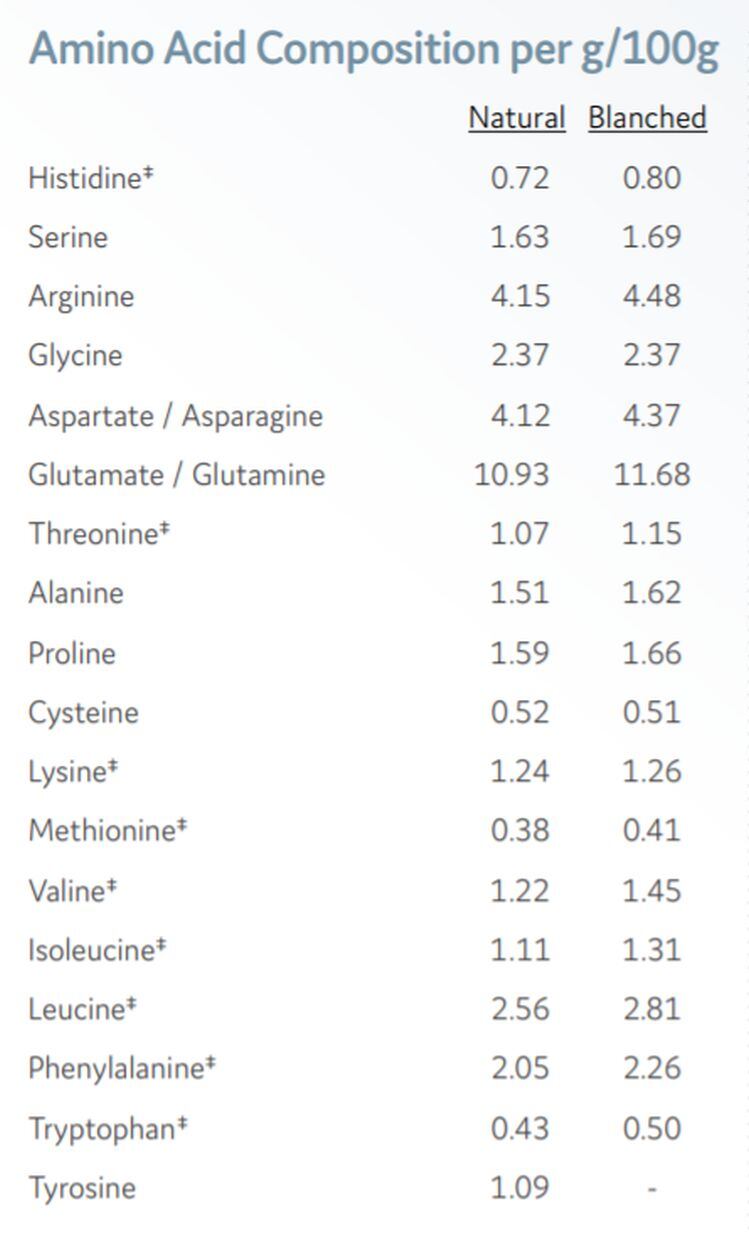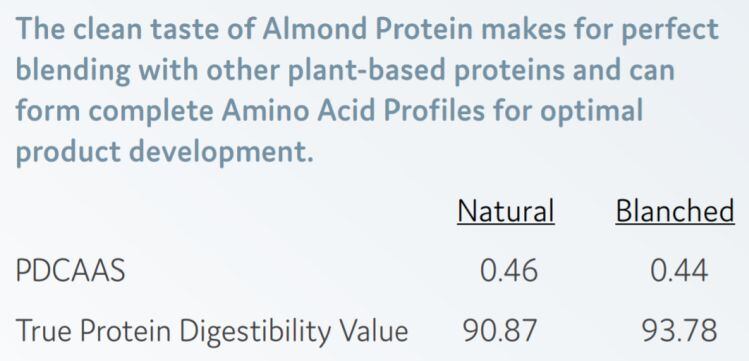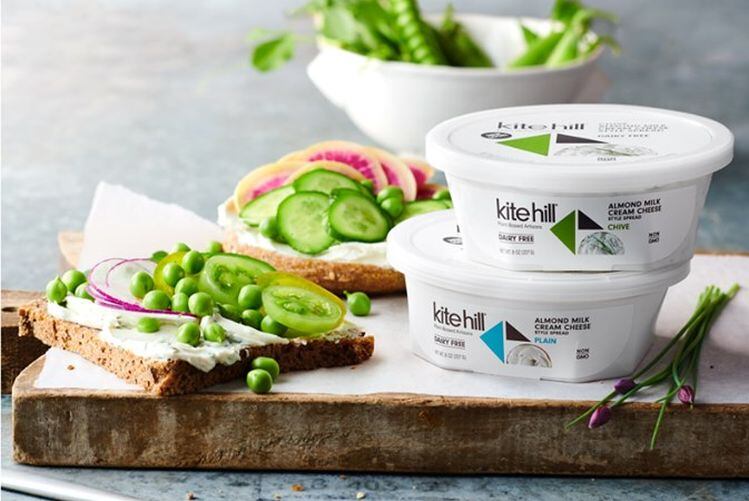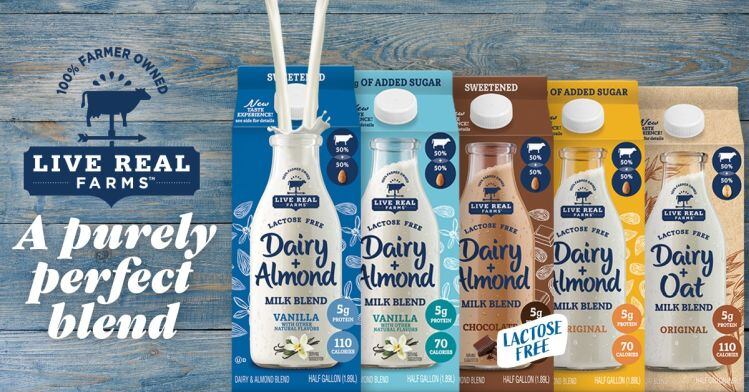Blue Diamond’s global ingredients division produces proteins made from expeller pressing almonds to remove the oil, partially defatting the remaining cake, and milling it to create a fine powder, which has a clean taste, allowing formulators to use it without adding sugars or flavors to mask off tastes associated with some other plant proteins, claims the firm.
FoodNavigator-USA (FNU) caught up with Jeff Smith (JS), director of marketing, to get the lowdown on almond protein, which he says is a good source of protein, fiber, potassium, calcium, iron, and zinc, and an excellent source of magnesium, phosphorus, manganese, copper and biotin.
FNU: How is the protein powder manufactured?
Blue Diamond almond protein powder is made with premium almonds grown in California’s Central Valley, and is produced via a simple mechanical separation process, removing most of the oil and leaving behind a nutrient-packed almond product which is then ground to an extra-fine powder consistency. It’s extraordinarily easy to blend, which is especially advantageous for smoothie, drink and protein shake formulations.
FNU: What percentage protein does the powder contain by weight and is it typically used on its own or in combination with other proteins?
The power delivers approximately 45% protein, making one 30g serving a good source of protein. It is often used within a protein blend to create products with complete amino acid profiles for optimal product development, and has been shown to be compatible with other complementary proteins, including both plant-based sources and dairy sources.
FNU: Do you offer different grades?
Yes. We offer natural [with skins on] and blanched [with skins removed] almond protein powder.
FNU: What kind of reception have you had from food formulators so far?
The reception has been overwhelmingly positive. Its clean taste and smooth texture are unparalleled in the protein space, filling a genuine need for a better-tasting, plant-based protein source.
FNU: Aside from protein, what else does the protein powder offer?
Almonds have long stood out as a natural superfood and are seen as a healthy, value add ingredient, when included in a wide variety of food and beverage products positioned as high-protein, all-natural, or plant-based.
Like almonds themselves, almond protein powder is nutrient dense and serves as an excellent source of biotin, phosphorous, copper, magnesium and manganese and a good source of calcium, potassium, zinc, and iron. These nutrients support strong cardiovascular, metabolism, digestive and circulatory systems as well as bone health. The ingredient also adds fiber to formulations and is saturated fat and cholesterol-free, supporting good heart health.
As a non-GMO, dairy-free, soy-free and gluten-free ingredient, almond protein powder also appeals to consumers with a broad range of dietary needs, and provides product developers with a clean-tasting and nutrient-dense protein choice for ‘free from’ food and beverage products.
FNU: What is the color and taste profile?
Most other protein supplements require flavor masking agents, which discourages formulators and consumers who are looking for a clean label. By contrast, Blue Diamond almond protein powder has a clean taste and an extra-fine texture smooth enough for any application. The powder is ideal in a protein blend, where it can be used as a flavor masking agent to offset undesirable flavors, such as earthy notes in pea protein and soy protein. These attributes make almond protein powder an incredibly versatile ingredient, and they are especially important for product developers who want to appeal to a label-conscious consumer.
FNU: How would you characterize the texture of the protein?
While almonds are one of the firmer nut types, the powder produced from almonds is milled to the finest granulation, providing a smoother mouthfeel compared to other plant-based proteins.
FNU: Which applications are best suited for almond protein powder?
The ingredient is ideal for protein and nutrition bars as well as breakfast cereals, smoothies and shakes, and fills a genuine need for a better tasting and more natural protein source. It can also be incorporated as part of a flour mix for a wide variety bakery products—cakes, breads, pastries, cookies and more.
The R&D team continues to explore various other functional uses for the powder, including its ability to be used as a clean-label thickener, emulsifier and foaming agent.
FNU: What consumer research have you done into how almond protein stacks up against some other proteins?
Due to its neutral flavor and nutritional profile, including almond protein in food and beverage products has been shown to raise consumers’ purchase intent. In a recent online survey, consumers of protein products perceived almond protein as the best tasting and most natural protein type — significantly more than whey, soy, or pea protein.
FNU: How is it listed on label?
It is listed as almond protein powder.






